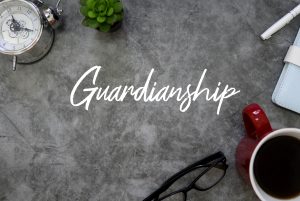 Article 81 of the New York Mental Hygiene Law provides the various statutory provisions for a New York Guardianship. Typically, the statute is utilized to obtain a guardianship over another person’s financial affairs and personal needs. The subject of these proceedings is referred to as an alleged incapacitated person (“AIP”).
Article 81 of the New York Mental Hygiene Law provides the various statutory provisions for a New York Guardianship. Typically, the statute is utilized to obtain a guardianship over another person’s financial affairs and personal needs. The subject of these proceedings is referred to as an alleged incapacitated person (“AIP”).
The procedures set forth in the statute require that a petition be filed. MHL Section 81.08 entitled “Petition” lists the information which must be contained in the Guardianship petition including a description of the AIPs functional ability. A key part of the Guardianship law is that a Court will need to be shown the ability of a person to handle various activities of daily living. These activities include the ability of a person to engage in financial matters and also to handle personal needs such as seeking medical attention, and maintaining a safe and secure living environment. Basic needs such as cleanliness and personal hygiene are important considerations. A Guardianship ensures that a person who is functionally incapacitated and at risk is protected from harm.
The Guardianship statute is also very particular that a Court only impose the least restrictive control by a Guardian. An AIP’s freedom and choice are a paramount consideration for protection by the Court.
A dilemma arises in some cases where an AIP is suffering from some disability which does not entirely diminish their functionality. For example, a person may be having issues due to substance abuse or a psychological disorder such as being bipolar. However, on some level, these individuals can be functional although not entirely capable of successfully engaging in many aspects of daily life. Unless a person is faced with serious harm or is harming someone else, a Guardian typically cannot force or require his ward to engage in certain activities such as taking medication or attending rehabilitation sessions. Without some cooperation by the affected person, the Guardian’s attempts to help a person, even if they are engaging in harmful activities, may be frustrated. For example, a Court Order would be needed to force a person to take medication if they refuse to do so. Obviously, if the person is unconscious, the Guardian can agree to treatment. But a young adult who is experiencing substance abuse and is otherwise functionally independent is not subject to forced control by a Guardian.
Recently, the celebrity Cher brought a conservatorship proceeding in Los Angeles regarding her son, because he was subject to substance abuse and as a result, allegedly, not able to manage his assets due to mental health and abuse issues. The son has opposed the guardianship, claiming that he is receiving treatment and did not want Cher to be his conservator. A recent article discussing the case written by Lisa France appears at https://www.cnn.com/2024/01/05/entertainment/elijah-blue-allman-contest-cher-conservatorship-request/index.html .
A Court will generally appoint a Guardian when a person appears to be at risk. However, the powers that may be granted to the Guardian may be limited. Sometimes, instead of reaching a determination that an AIP is incapacitated, a Court may only determine that a person is in need of a Guardian and forego a ruling on incapacity. There are many situations where individuals clearly need help with their affairs but do not rise to the level of incapacity. Such borderline cases are very difficult to determine for a Court.
I have been representing clients in Article 81 Guardianship matters for over forty (40) years. These cases can be complicated and the assistance of an experienced Guardianship lawyer can be essential. Call Me Now for a free confidential review of your guardianship issue. We offer reasonable and flexible fee arrangements and personal representation.
New York Trusts and Estates Attorney Jules Martin Haas has helped many clients over the past 40 years resolve issues relating to guardianship and probate and estate settlement throughout New York City including the Bronx, Queens, Brooklyn, Manhattan, Nassau and Suffolk County. If you or someone you know has any questions regarding these matters, please contact me at (212) 355-2575 for an initial free consultation.
 New York Probate Lawyer Blog
New York Probate Lawyer Blog

